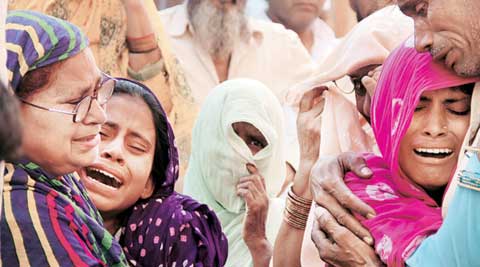
Just about 45 km from the national capital, 50-year-old Mohammad Akhlaq was beaten to death by a mob on Tuesday, instigated by a rumour and an announcement at a local temple about a Muslim family storing and consuming beef. How should one look at this murder on Delhi’s edge, in Bisara village? As a gruesome crime committed in a region that gained notoriety most recently for the eruption of largescale communal violence in Muzaffarnagar almost two years ago in 2013, whose scars are yet to fade? Or as a portent of a spreading intolerance and polarisation, which is emboldened by a perceived official sanction for acts of majoritarian lawlessness and violence? Disquietingly, indications are, the latter scenario is playing out. The murder of Mohammad Akhlaq may not just be a standalone breach of the thinning rule of law in the badlands of western UP, but a part of a disturbing pattern of anti-minorityism in the country that threatens to strain fragile ties and the neighbourliness between communities.
This pattern draws upon and contributes to the new rash of meat bans in several states, exhuming old legal provisions and conventions as justification. It is shored up by a BJP MP like Yogi Adityanath, who pronounces Muslim population growth captured by the latest census figures to be a “threat to Hindus”, demands a Central law to check it, and runs an opinion poll on his website that calls for yes and no answers to whether the majority community is under siege in India today. It is bolstered by a Union minister like Mahesh Sharma, who suggests that Muslims are essentially anti-national, and gets away with it, no political penalties paid. That spreading pattern of anti-minorityism draws succour, most of all, from the silence of a prime minister who is an eloquent communicator on just about everything else.